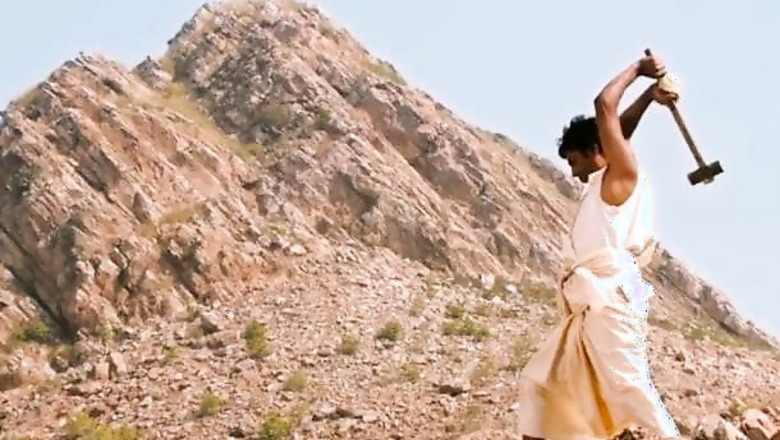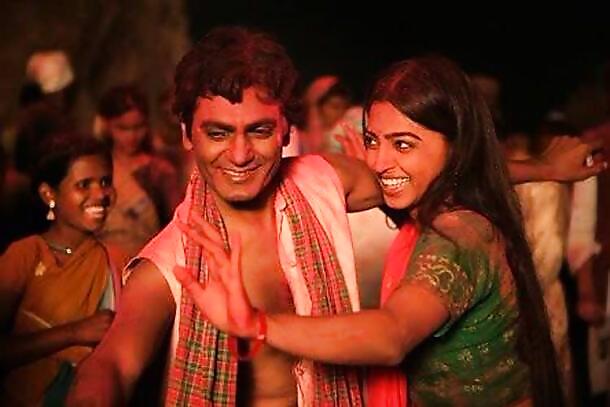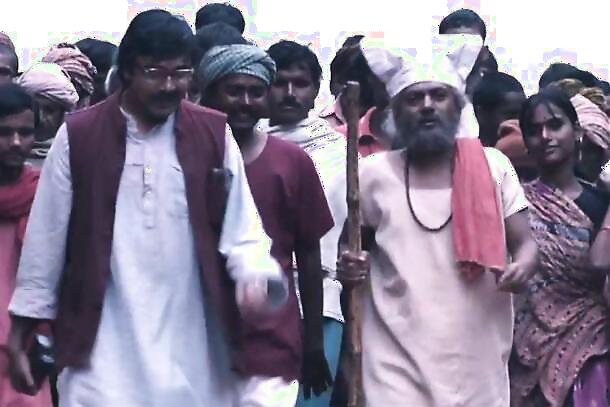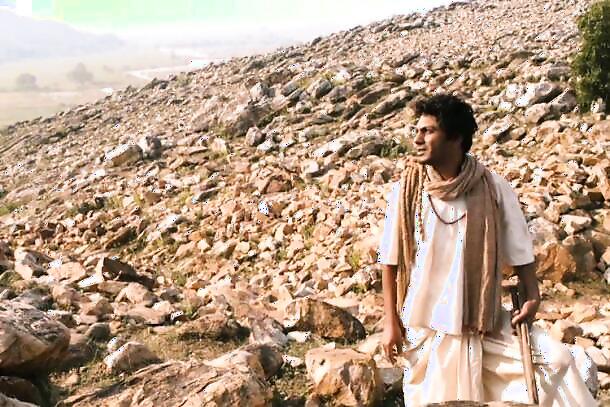
views
Director: Ketan Mehta
Cast: Nawazuddin Siddiqui, Radhika Apte and Tigmanshu Dhulia
Love, especially if it is the first time that you experience it, remains as a huge part of who you are. From the passionate emotions that are involved or just the experience of having someone outside the family love you immensely, every bit adds to the power of love. And that’s exactly what Ketan Mehta’s ‘Manjhi’ explains. ‘Inspired’ by the true life of Dashrath Manjhi, a poor labourer in Bihar's Gehlaur village, the film has several lessons of love and inspiration that can certainly help all of us keep moving even during the toughest times.
While the love story of Nawazuddin and his onscreen wife Radhika Apte remains the key theme, with it also comes the focus on several social evils that existed in Bihar. Whether it is the manner in which the Musahars are oppressed and ill-treated by evil thakurs or the weird concept of forced marriage or women being subjected to discrimination, the film manages to voice several societal concerns, but then that’s where it begins and ends. So yes, while we are shown Bihar as a region where equality just doesn’t exist, its impact gets lost with the focus being shifted to the struggles of Dashrath.

In Ketan Mehta’s film, which has enough complexities, Manjhi doesn’t believe in conforming to the rules and regulations created by those who have the power to make them by virtue of their upper caste. Manjhi, who leaves his village to escape the reality of bonded labour, comes back with the thought that the government’s decision to abolish untouchability will help his village progress. Contradictory to his thoughts that his village is free from caste prejudices, Manjhi is thrashed by the villagers just because he touches the upper caste village head and his son. This is the first time that we as viewers are exposed to the naivete of Manjhi who fails to see evil staring him in the face and just responds to it cheerfully. It is this wide-eyed, blissfully ignorant, and unworldly Manjhi that we all fall for.

While a simple, linear plot could have worked for the biopic, Mehta’s attempt at infusing unjustified drama takes away the impact. But because the film is ‘inspired’ and not ‘based’ on the life of Dashrath, the viewers have an inkling that they aren’t in for the truth but for its version, which transforms by the advantages of drama. For instance, Manjhi confronting Naxal gunmen, deciding to go to Delhi to meet PM Indira Gandhi and protest against the state of emergency , are staged to engage the viewers.

Agreed, ‘Manjhi’ doesn’t strive for perfection, and one is aware of what will happen next, but it’s highly watchable, courtesy Nawazuddin. It must have been exceptionally difficult for Nawazuddin to play a character who is both intriguing and relatable, and doing his best to engage the viewers with his amusing mannerisms and energetic personality. If Manjhi could spend 22 years of his life to carve a way through a mountain by using a hammer and chisel, that’s purely because of his imagination and ability to see down the road. It was his skill to think ahead and form a mental picture of what he had to build (steadily) that helped him achieve the impossible. The sequence where he enters the well to survive excessive heat and eats the plants stuck on the wall can leave you numb.

Apte is pleasant as Dasharath's wife. Because the script doesn’t allow her to do much, her role is restricted to showering love, getting into minor tiffs and inspiring Manjhi. It is sad to see the potential of Pankaj Tripathi and Tigmanshu Dhulia being wasted.
By film’s end, we appreciate Manjhi’s relentless efforts, reminding us that it takes passion, madness and motivation to achieve the impossible. To cut a long story short- despite a flawed script, Nawazuddin’s acting prowess can keep the viewers 100% entertained.
Rating: 3/5




















Comments
0 comment